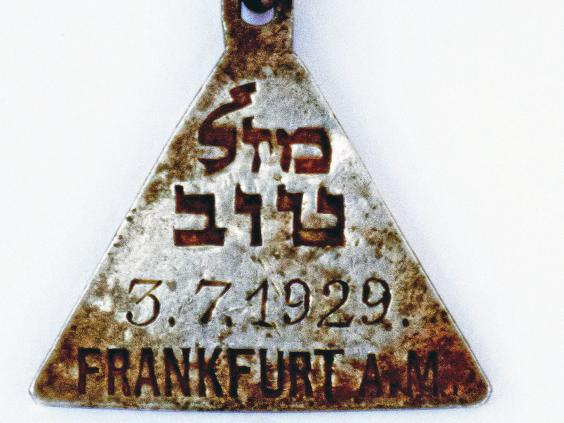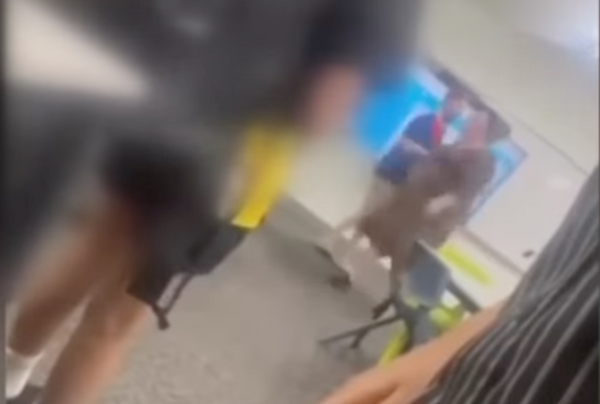
Archaeologists excavating a Nazi extermination camp have discovered a pendant thought to be identical to one belonging to Anne Frank.
The possession, engraved with three Stars of David and the Hebrew letter “heh”, an initial for God, is thought to belong to Karoline Cohn, a Jewish girl who died in the camp.
The triangular pendants are thought to be the only ones in existence.
Researchers believe the two girls may have been part of the same family or have been friends and have called for remaining relatives of the girls to come forward.
More than 250,000 Jews were killed in Sobibor, in eastern Poland, one of the most extreme examples of the Nazi ''Final Solution“ to eradicate European Jewry. Anne died at the Bergen-Belsen camp, in northern Germany, in 1945.
Discovered in a stretch of land dubbed the “Pathway to Heaven” – the track where victims were undressed and their heads shaven before the gas chambers – the pendant bears the year of Karoline's birth and the word Frankfurt, the city where she was born. Anne was also born in Frankfurt in 1929.
Since 2007, the Israel Antiquities Authority, together with Yad Vashem, has been conducting excavations at the Sobibor camp in a novel approach to Holocaust research.
The camp was destroyed after an October 1943 uprising, with the Nazis levelling it and planting trees over it to cover up their crimes. Yet, archeologists have managed to uncover the gas chamber foundations and the original train platform.
Unlike other facilities that had at least a facade of being prison or labour camps, Sobibor and the neighbouring camps Belzec and Treblinka were designed specifically for exterminating Jews. Victims were transported there in cattle cars and gassed to death almost immediately.
“These recent findings from the excavations at Sobibor constitute an important contribution to the documentation and commemoration of the Holocaust, and help us to better understand what happened at Sobibor, both in terms of the camp's function and also from the point of view of the victims,” Havi Dreifuss, of Yad Vashem's International Institute for Holocaust Research, said in a statement.
Israel Antiquities Authority archaeologist Yoram Haimi said: "The significance of the research and findings at Sobibor grows with every passing season of excavation.
"Every time we dig, we reveal another part of the camp, find more personal items, and expand our knowledge about the camp.
"In spite of attempts by the Nazis and their collaborators to erase traces of their crimes, as well as the effects of forestation and time, we enhance our understanding of the history previously known to us only through survivor testimonies. In this way, we ensure that the memory of the people killed there will never be forgotten."








